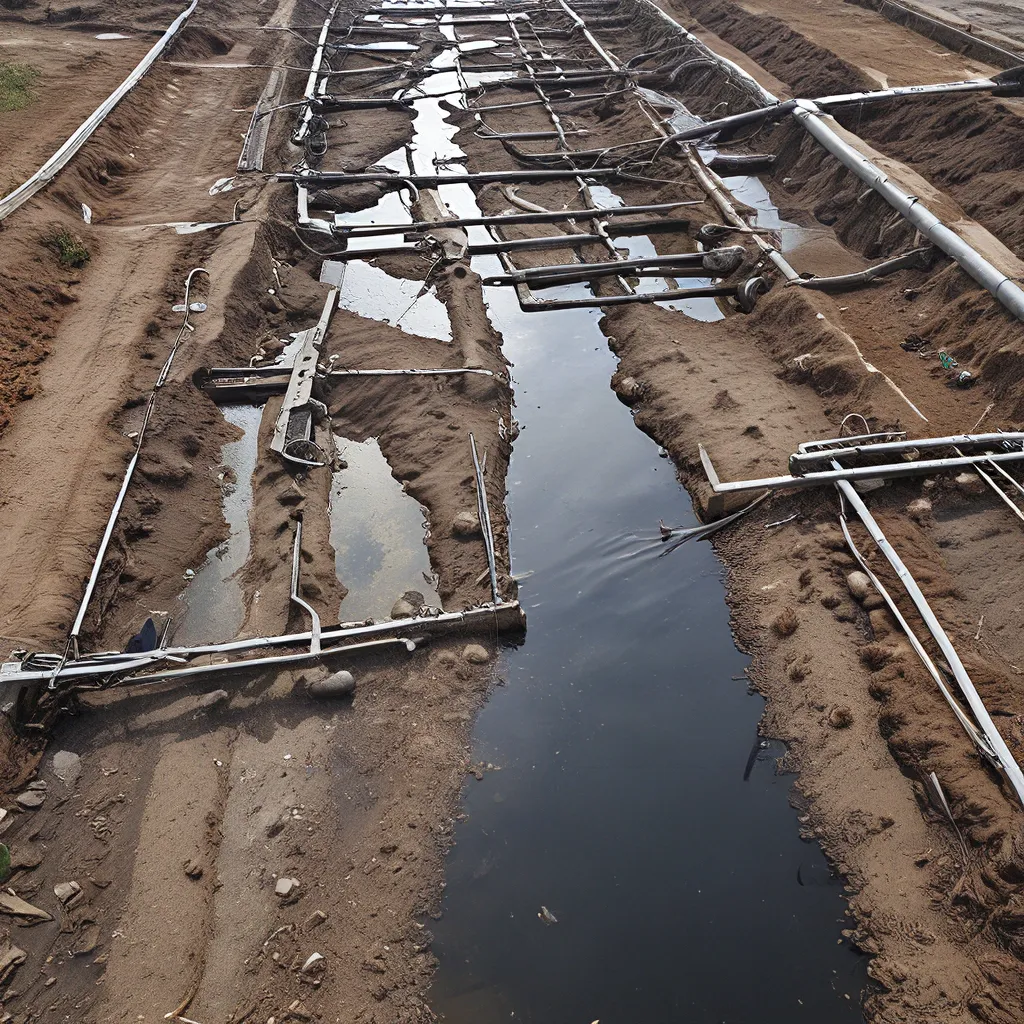
As someone who’s always been fascinated by the intersection of science, technology, and public health, I couldn’t help but dive into the world of wastewater-based epidemiology. It’s a field that’s been gaining a lot of traction in recent years, and for good reason – it offers us a unique and powerful way to monitor the health of our communities.
Imagine this: instead of relying solely on individual medical records or self-reported data, we can tap into the collective “pulse” of a population by analyzing the wastewater they produce. It’s like taking the temperature of an entire city, and the insights we can glean from this data are nothing short of remarkable.
Uncovering Hidden Trends
One of the most exciting aspects of wastewater-based epidemiology is its ability to uncover hidden trends that might otherwise go unnoticed. Think about it – our wastewater is a rich trove of information, containing traces of everything from illicit drugs to infectious diseases. By analyzing these “biomarkers,” researchers can get a real-time snapshot of what’s happening in a community, even before traditional surveillance methods detect it.
For example, let’s say a new virus starts to spread in a particular region. By monitoring the wastewater, public health officials might be able to identify the initial signs of an outbreak before it becomes widespread. This early warning system could be the difference between a localized incident and a full-blown epidemic.
But it’s not just about infectious diseases – wastewater analysis can also provide insights into other public health challenges, such as substance abuse and mental health trends. Imagine being able to track the prevalence of opioid use or the impact of a natural disaster on a community’s well-being, all through the data hidden in their wastewater.
Bridging the Data Gap
One of the key advantages of wastewater-based epidemiology is its ability to bridge the data gap that often plagues traditional public health monitoring. Medical records and self-reported data can be incomplete or biased, but wastewater provides a more comprehensive and objective view of what’s happening in a population.
Studies have shown that wastewater analysis can detect the presence of certain drugs or pathogens even before they show up in clinical settings. This means that public health officials can get a head start on addressing emerging issues, rather than playing catch-up.
But the benefits of this approach go beyond just early detection. By tracking trends over time, researchers can identify patterns and predict future outbreaks or public health challenges. This information can then be used to inform targeted interventions and allocation of resources, ensuring that the right people and programs are in place to address the needs of the community.
The Power of Collaboration
One of the things that really excites me about wastewater-based epidemiology is the collaborative nature of the field. It’s not just about scientists and researchers – it’s about bringing together a diverse range of stakeholders, from public health authorities to water treatment facilities to community organizations.
The data collected from wastewater can be shared and analyzed by multidisciplinary teams, allowing for a more holistic understanding of the issues at hand. This collaborative approach is crucial, as it helps to identify the root causes of problems and develop tailored solutions that address the unique needs of each community.
And the best part? This isn’t just a theoretical concept – it’s happening right now, all around the world. Wastewater-based epidemiology is being used to monitor everything from drug use to disease outbreaks, with remarkable success stories that are changing the way we think about public health.
The Future of Wastewater-based Epidemiology
As exciting as the current state of wastewater-based epidemiology is, I can’t help but feel that we’re really just scratching the surface of what’s possible. With ongoing advancements in technology and continued investment in research, I believe this field will only continue to grow and evolve, becoming an indispensable tool in the public health arsenal.
Just imagine the possibilities – real-time monitoring of emerging threats, predictive modeling of future health challenges, and targeted interventions that address the unique needs of our communities. It’s a future that’s closer than you might think, and one that I’m eager to be a part of.
Of course, there are still challenges to overcome, such as ensuring data privacy and navigating the complexities of regulatory frameworks. But I’m confident that with the right collaborative efforts and innovative thinking, we can harness the power of wastewater-based epidemiology to create a healthier, more resilient world.
So, if you’re like me and you’re passionate about public health, I encourage you to explore the fascinating world of wastewater-based epidemiology. Who knows – maybe you’ll be the one to uncover the next big breakthrough that changes the way we monitor and respond to the health of our communities.
And if you’re interested in learning more about how Alpha Wastewater is applying these cutting-edge techniques to serve our clients, I’d be more than happy to chat. After all, when it comes to public health, we’re all in this together. Let’s make a difference, one flush at a time.